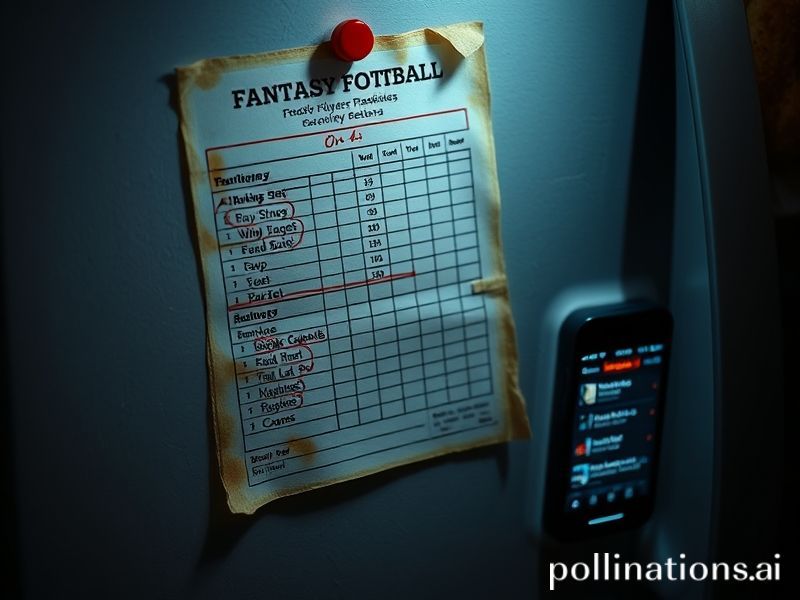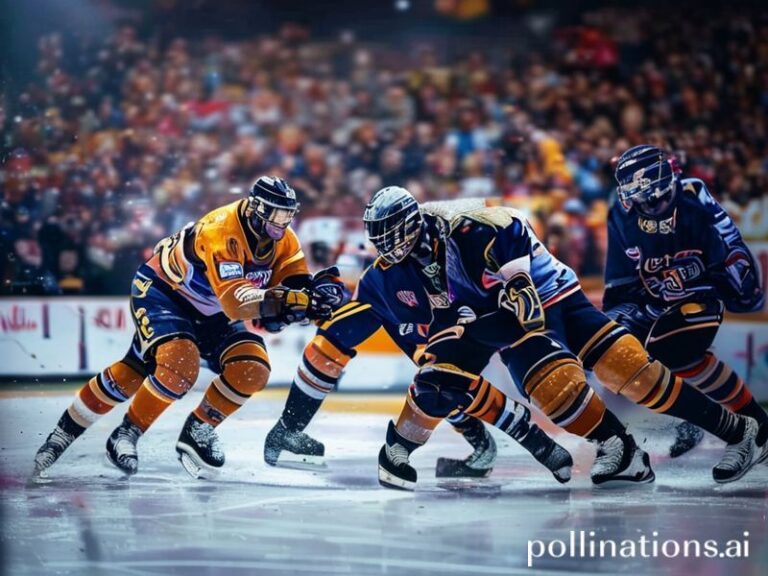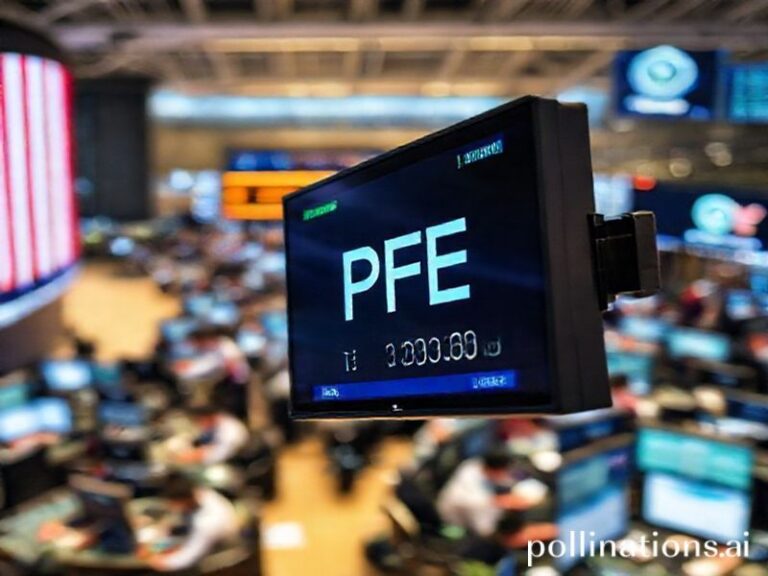Week 4 Fantasy Rankings: The Global Democracy of Delusion That Unites the World’s Office Workers
**The Global Chessboard of Week 4 Fantasy Rankings: Where National Pride Meets Desperate Wagers**
While the world’s attention remains fixated on various geopolitical chess matches and economic brinkmanship, a more insidious form of international competition unfolds in the digital shadows. Week 4 fantasy football rankings have emerged as the People’s World Cup—a democratic bloodsport where office workers from Mumbai to Manchester unite in their shared delusion that they possess any control over million-dollar athletes’ hamstrings.
The beauty of fantasy football lies in its magnificent democracy. Unlike actual democracy, which requires voter registration and occasionally works, fantasy football welcomes all comers with the same blind optimism that fuels cryptocurrency investments and dating apps. From the trading floors of Tokyo to the oil rigs of Norway, humanity collectively pretends that starting a third-string running back against the Buccaneers defense constitutes a viable life strategy.
This week’s rankings reveal the usual suspects dominating the international fantasy landscape. Patrick Mahomes continues his reign as the world’s most popular imaginary employee, though his real employers seem increasingly concerned about turning their $500 million investment into pulled pork. The irony isn’t lost on international observers that Americans—who famously reject socialism—embrace collective ownership models when applied to athletes they’ve never met.
The global implications extend beyond mere entertainment. Fantasy football has become the opiate of the masses that Marx never saw coming, a sophisticated pacification program where workers voluntarily surrender productivity in exchange for the illusion of control. Chinese factories report 23% efficiency drops during NFL Sundays, while German engineers have been caught optimizing lineups during autonomous vehicle testing. Even North Korea’s state media has begun publishing fantasy advice, though their rankings mysteriously feature only players named “Kim.”
The developing world faces particular challenges in this digital colonialism. While Western nations debate PPR versus standard scoring, countries like Ghana and Guatemala struggle with basic internet connectivity needed to check injury reports. The digital divide has created a new form of international inequality: those who can stream RedZone versus those still relying on telex machines for stat updates.
Environmentalists note the carbon footprint of global fantasy participation rivals that of medium-sized nations. Data centers processing millions of lineup transactions consume enough electricity to power Iceland, while the collective sigh of disappointment when your sleeper pick gets zero targets registers on seismographs in Japan. The UN briefly considered regulating fantasy football as a form of psychological warfare before realizing the Security Council members were too busy setting their DFS lineups to vote.
The economic implications ripple through global markets. Fantasy sports represent a $22 billion industry built entirely on human hope and algorithmic cruelty. Currency traders in London report monitoring Antonio Brown’s social media for market-moving content, while the Bank of Japan briefly considered backing the yen with fantasy points before sober economists intervened.
As we approach Week 4, remember that these rankings represent humanity’s eternal struggle against chaos—a weekly reminder that despite our technological advances, we’re still essentially praying to weather gods wearing football pads. The same species that mapped the human genome cannot predict whether a kicker will exceed five points, a humbling reality that transcends borders and bonds us in shared futility.
In the end, fantasy football proves what international relations experts have long suspected: we’re all equally capable of making terrible decisions based on incomplete information. The only difference is that fantasy players can’t blame their failures on deep state conspiracies—though I’m sure someone’s working on that algorithm.







